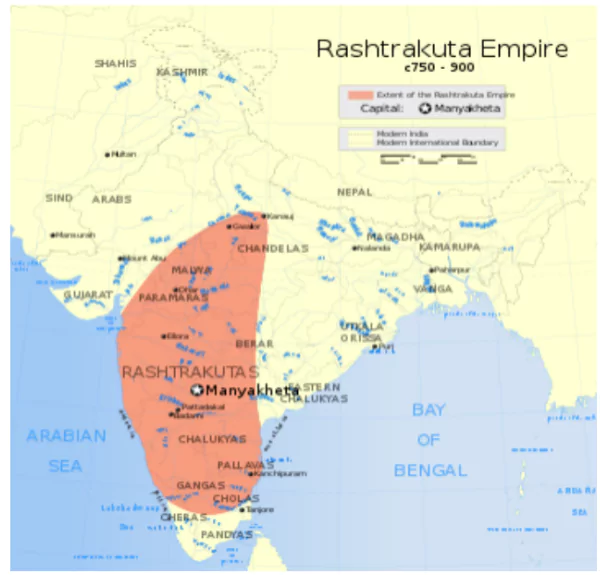![]() May 14, 2024
May 14, 2024
![]() 5615
5615
![]() 0
0
The Rashtrakutas, originating from the Kannada-speaking region, rose to power in the Deccan around 743 AD. Led by influential rulers like Dantidurga and Amoghavarsha I, they became a dominant force in India for nearly two centuries. Known for their patronage of diverse religions and literature, they left a significant mark on Indian history.
 Emergence of the Rashtrakutas: The Rashtrakutas, referred to as Ballahara by the Arabs, emerged as a significant power around A.D. 743 in the Deccan, ruling from their capital at Manyakheta, present-day Malkhed.
Emergence of the Rashtrakutas: The Rashtrakutas, referred to as Ballahara by the Arabs, emerged as a significant power around A.D. 743 in the Deccan, ruling from their capital at Manyakheta, present-day Malkhed.
| Must Read | |
| Current Affairs | Editorial Analysis |
| Upsc Notes | Upsc Blogs |
| NCERT Notes | Free Main Answer Writing |
The Rashtrakutas, a dominant force for nearly two centuries, contributed to India’s cultural richness through patronage of diverse religions and literature. While their decline began under Amoghavarsha I, their legacy endures through literary works like Kavirajamarga and the influence of Jainism and other religions in the Deccan.
<div class="new-fform">
</div>
Latest Comments